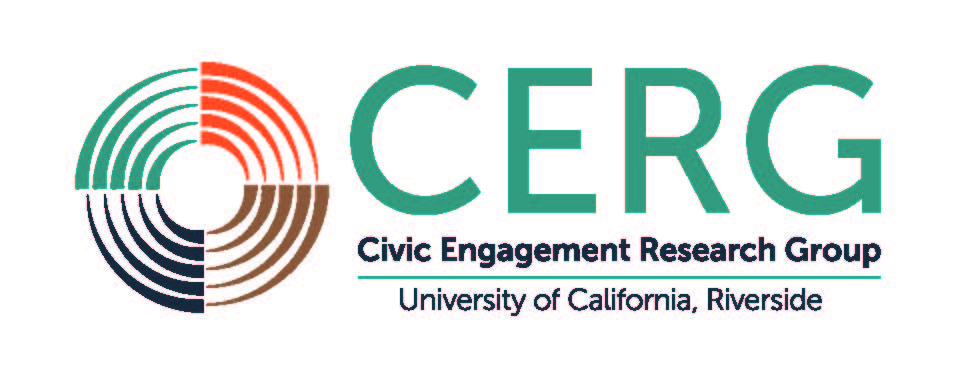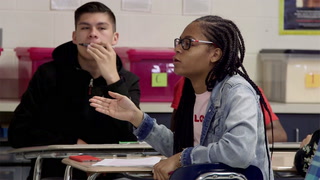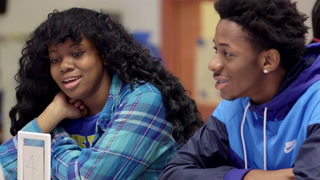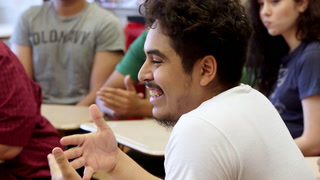Structured Academic Controversy with Elizabeth Robbins
Elizabeth Robbins:
The purpose of a structured academic controversy, or a SAC, is to give students a reading that presents two sides, or sometimes more, but generally two sides of a controversial topic, ask them to do a close reading and identify the arguments that are being made by both sides, and then come in, and with a partner, dissect those and pick out and discuss what they think are the strongest arguments, and then take turns, essentially teaching them to each other. The idea being to disinvest students from one side or another so that they don't see it as a debate or an argument in which whatever side you've been assigned must be the side that wins, and instead allow students to explore those ideas, make sure that they understand them from both sides. So they will teach one side, hear the other, and then switch and teach the other side.
Elizabeth Robbins:
Notice that there is no debate up here. Okay. Which tells you, this is not a debate. It is a deliberation. So what does it mean to deliberate?
Student 1:
Deliberation is more like a discussion rather than a debate. So with a debate you're trying to counter argue the opposing side, but in a discussion we're being open to both view points.
Elizabeth Robbins:
Brilliant. So a deliberation is the idea that we are listening and open minded to both sides and that we are contributing to those viewpoints with information that we have.
Elizabeth Robbins:
Here's what's going to happen. We're to actually going to dive into the SAC with these norms in mind, that our purpose today is to hear both sides and hear different feedback and offer unique perspectives, sometimes if it's not even our perspective, that we're respecting everyone's opinions, both in how we agree and how we disagree, that we understand that we strengthen our own argument and our understanding when we hear other points of view, and that our discussion should be based in the idea that hearing everyone contributes to our understanding of what's going on, and our own opinion.
Elizabeth Robbins:
The idea of using suffrage at 16, which is an issue that is very actively being advocated for. It was really about trying to bring in a relevant current issue so that students would have space to connect what they're learning to an issue that is very much applicable to their lives.
Student 2:
It really opens up your mind to different opinions and different views. Because normally when I do like a Socratic seminar, I have one view and I stick to that, but I think today was the first time where I've actually kind of flipped flopped between different views.
Student 3:
Okay, So those are our top three and then can even tie them into other perspectives to get an overall understanding, like the maturity level and stuff like that.
Elizabeth Robbins:
A side, you are going to present your information first. B side you are going to write down what you hear A side saying, without interruption. All right. So side A please present your information to side B.
Student 4:
Teenagers already have citizen participation. Even if we don't have the right to vote, students are already in political organizations or causes that affect public policy already. And these are all activities of citizen participation. And so if older teenagers are already in this, then they should have the ability to vote.
Elizabeth Robbins:
Side B, you are going to present your three points now. So we'll do the same thing just with side B.
Student 3:
Generally they need to, require parental consent for most major life decisions so technically they're really not holding their own decisions because they need someone as a higher age level and a higher maturity as it represents itself that they need consent to further do whatever they decide to do and approve of whatever their decisions may be.
Elizabeth Robbins:
I want you to answer the deliberation question. Where you are right now, what do you think the answer to that is? What were the two pieces of evidence that you heard that really swayed your opinion?
Elizabeth Robbins:
Now, remember I said, evidence is definitely what you just exchanged and what you write about, but it is also your lived experience that matters. So you can now welcome that into part of what you're going to be using in order to share your thinking with the other people at the table.
Student 5:
In SAC, there's a lot of gray area. There's not necessarily a, is it binary decision? So it just goes to show how issues in the real world aren't necessarily just true or false. There's a deeper ground to them and they should be explored.
Elizabeth Robbins:
So the idea is that this is how the world works, this is how human beings are, right? We have different opinions. And when we come together, can we actually come up with a solution? Can we deliberate, hear each other, and think what is the best policy that we can come up with based on our points of view? And this is hard, because sometimes that means negotiating.
Student 6:
Would you be okay with the fact that we said like, "No, they shouldn't be allowed to vote, but however, I feel like the 16 for half a vote would be a compromise.
Student 7:
Yeah, because kind of like how we tied back how it's different generations and different issues. So it should be implemented, but also people don't have that extensive knowledge as an adult would. You need to know more about it.
Elizabeth Robbins:
So let me ask you a question. Why do those things have to come with voting? I mean, you're absolutely right. That's absolutely why 18 year olds write a protest against the Vietnam war and being drafted. So you're 100% correct, but why do those things have to come with it?
Student 5:
I feel by saying you're voting, you're saying that you are mature enough to make a decision as to who should be representing you and who should be in office in the country. And that's very much an adult decision. If you have the right to, if you can make that decision for yourself...
Student 8:
Well, the reason behind it was that a lot of the evidence was that most 16 year olds have a lot of dependence on their parents. So there could be a little bit of them understanding that they should vote for who they want, instead of their parents.
Student 9:
That's right, because that would be more responsibility, but at least being able to make sure where you're studying and your school's system, it accurately represented...
Student 10:
The law class or whatever. You don't get to vote. But if you take the class and you pass the class, you're allowed to vote at the age of 16.
Elizabeth Robbins:
Right now, what do you think? If you think 16 year olds should be able to vote, please stand.
Elizabeth Robbins:
All right, have a seat, please. If you think that 16 year olds should not be able to vote, please stand.
Elizabeth Robbins:
Okay.
Elizabeth Robbins:
Because what happens a lot sometimes is especially if we are the only person sitting at our table or the only person in a group, and we hold a point of view, we sometimes think we are crazy or the only people that feel that way. And so I want you to see that there are always other people out there that have similar opinions to you. So there are always people to search out if there are change that you want to make, that you can always find people to do that.
Elizabeth Robbins:
People should be able to engage with one another and hear each other even if it is something that forms a kind of core belief. Students having the opportunity to engage in these things then opens them up to later discussions. And the only way to do that is provide them a space in which to engage safely in that learning.
Elizabeth Robbins:
I think it's a method of discussion that students can build a lot of competency in and then really work on their own. So this is the first time that my class has done a SAC, but it's always wonderful to hear the kinds of thinking that they do and the kinds of constructing that they do.
Elizabeth Robbins:
So I really do think it's an easy entry level kind of discussion format.
Student 11:
What was different about this kind of discussion, the SAC, is that I feel like everybody had the opportunity to express their opinion. Everybody had the opportunity to be heard. Everybody's opinion was heard. No one like shut down.
Student 4:
I feel as teenagers who are about to turn into young adults, and in school, I feel like that's a place where we could see all the sides and come up with our own decisions.














28 Comments
Brent Schmidt Sep 14, 2022 6:49pm
This video coves social awareness, relationship skills, and responsible decision making.
William Veal Oct 21, 2020 9:48am
srhmsrymry
Arrinna Poessnecker Dec 7, 2020 4:59pm
?
Mark Taylor Oct 31, 2020 12:45am
Indeed ☺️
Ashley Minnick Sep 24, 2020 7:10pm
Deliberation has more respect and listening in it than debates normally do. With a debate people choose their side and stick to it no matter what. With deliberation students listen and present both sides of an issue. By presenting controversial issues in the classroom and having students listen to both sides it allows them to form their own opinions. If a teacher started out with small issues for deliberation and built up to the bigger, controversial issues this would give students time to learn how to listen and evaluate both sides before diving into the big issues. This activity is beneficial to the classroom because it teaches students how to respect others opinions and to not interrupt even when you disagree. One student even mentioned that deliberation "opens your mind to different views" instead of students listening but not hearing opposing sides.
Beverly Thomas Sep 24, 2020 4:47pm
Culture diversity is something that the students across the board should learn about their different lanugage, food, attire and family life style. Deliberation was a great way to insert their point of view.
Christopher Carr Sep 17, 2020 3:23pm
Deliberation is more slow paced than a debate. It gives you the time listen and rebut.